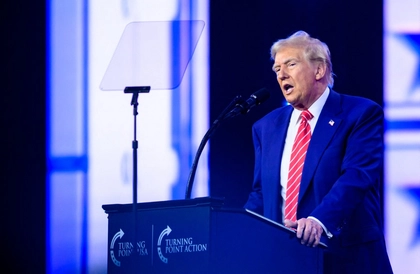Germany’s military will get more than €20 billion worth of new defense equipment, including four submarines, under a record package approved by the parliamentary budget committee Wednesday.
The new weapons and gear will be ordered at a time when Europe’s biggest economy seeks to rebuild its long-neglected armed forces in the face of high NATO tensions with Russia over the Ukraine war.
JOIN US ON TELEGRAM
Follow our coverage of the war on the @Kyivpost_official.
Defense Minister Boris Pistorius greeted the decision to greenlight the 38 major projects, “by far the highest number ever,” and said among the other “biggest chunks” was a new frigate.
The committee also approved the purchase of Patriot missile defenses and rocket artillery as well as funding for the cyber sector.
Pistorius said some of the approvals were for “long-term projects” such as the submarines, to be built by Germany’s Thyssenkrupp Group, which would take seven to eight years to deliver.
His ministry said that “the Russian war of aggression against Ukraine... and the increasing number of hybrid attacks on Europe” make clear the need for Germany and NATO to show “effective deterrence.”
Days after Russia’s full-scale invasion of Ukraine in early 2022, Chancellor Olaf Scholz said it marked an “epochal shift” and announced €100 billion in extra funding to improve Germany’s ramshackle armed forces.
Germany had allowed defense spending to drop off steeply since the end of the Cold War but has now, following heavy political pressure from Washington, raised it back to the NATO goal of 2% of GDP.

Germany Could Send Troops to Future Ukraine Buffer Zone: Minister
Pistorius thanked opposition parties for their support on the spending, despite the fact that Scholz, whose coalition collapsed last month, now heads a minority government ahead of new elections on Feb. 23.
“It was clear to everyone that this is not an issue for the election campaign,” said Pistorius.
Separately on Wednesday, Germany’s economy ministry said that the country’s arms and other defense goods exports had reached a new record of €13.2 billion this year.
Almost two-thirds, or €8.1 billion worth, went to Ukraine, much of it financed by Berlin. Next came Singapore at €1.2 billion, followed by Algeria, the United States, Turkey and India.
State Secretary for Economic Affairs Bernhard Kluttig said that, while German arms exports would remain “restrictive” and subject to case-by-case review, the “military aid for Ukraine is also in our own security policy interest.”
You can also highlight the text and press Ctrl + Enter










